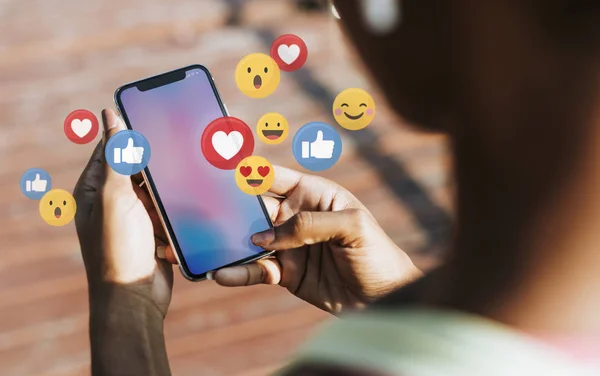Can quitting social media be a passport to lasting peace of mind, fulfillment, and happiness?
Using social media has many benefits including networking and making money. It is also addictive, can affect your mental health, destroy your relationships, and lower your self-esteem. Many of its users report it makes them sad, anxious, or depressed most of the time. It may stem from cyberbullying, unhealthy comparisons, and long hours wasted in endless arguments.
In this blog post, we will explore the benefits of quitting social media for mental health. It also shows you how it can lead to more happiness, freedom, and fulfillment in life.
Benefits of joining the social media

Social media is an integral part of personal and professional lives today. It has many benefits to individual and business users across the world. These include;
- Social Networking; Platforms like Facebook, Twitter, and Instagram allow you to connect with friends, fans, and family anywhere, anytime.
- Access to information; You can stay updated on the latest news, and job opportunities and share your experiences with the world using social media.
- Make Money; If done right, you can make money on social media as an influencer, social media manager, and other online businesses relying on it for marketing.
How Social Media Is Ruining Your Life
What are the negative effects associated with social media on mental health and social relationships?
There are many negative effects of social media on emotional well-being. These include anxiety, depression unrealistic expectations, and feelings of inadequacy. Besides, social media can be a toxic environment that takes a huge toll on your mental health. A study published in the Journal of Social and Clinical Psychology found that social media use is associated with lower self-esteem, unrealistic expectations, and comparisons.
Learn how each of these is affecting you.
Low Self-esteem

Social media platforms are filled with carefully curated content. People edit their images on social media to enhance their visual appeal and social status. This way, they can increase likes, shares, and comments on social media and encourage their fans to take action.
This can however create unrealistic expectations and feelings of inadequacy among peers. According to recent research, the use of Instagram worsened body image issues for one in three teenage girls. On the extreme, it can lead to poor body image, anxiety, and depression. It has also forced some to adopt poor eating habits and body dysmorphia.
Addiction
Another negative effect of social media on mental health is triggering impulsive behavior like shopping addiction.
Social media is designed to be addictive. Many platforms use algorithms and notifications to keep users glued as long as possible. This can lead to decreased productivity at work, as well as increased stress and anxiety.
Isolation & Loneliness
Some studies have linked the use of social media platforms to increased feelings of loneliness and social isolation.
While it helps you with a sense of connection and community, it can also disconnect you from real-life relationships and activities. It arises when you substitute use of social media with face-to-face social interactions. On the other hand, social media can expose you to unrealistic or distorted portrayals of connections’ lives, leading you to feel socially isolated.
Poor Relationships
Platforms like Facebook and Instagram can lead to increased jealousy, insecurity, mistrust, and conflict in romantic relationships.
You can end up feeling insecure and threatened by your partner’s online interactions with others. This can create trust issues and strain on your relationship. Furthermore, social media can lead to less face-to-face interactions. This will cause you to miss out on the nuances of nonverbal communication and create less meaningful connections.
FOMO
Social media can also create FOMO (fear of missing out) anxieties in your relationship.
You may end up taking and following challenges to be part of your online community. It will lead you to spend less time with friends and family in real life.
This can cause you to miss out on important moments and shared experiences.
Is there a healthy way to be on social media?
Do you know that reducing social media use to 30 minutes a day can result in a significant reduction in levels of anxiety, depression, loneliness, sleep problems, and FOMO?
By being mindful of the potential negative effects of social media, you can take steps to address them. you can improve your mental health and well-being, and lead a happier, more fulfilling life.
| Factors | Tricks, Hacks & Tips |
|---|---|
| Mental Health | Set boundaries with your social media use, such as limiting your time spent on the platforms per day. Unfollow accounts and toxic pages that make you feel bad about yourself. Take more real-life interactions and activities, such as spending time with loved ones. |
| Relationships | Prioritize face-to-face interactions with your loved ones. Limit social media use. Set boundaries with your phone and social media. Turn off social media app notifications Schedule designated times to check your accounts. Engage in activities that promote in-person interaction, such as joining a club or attending social events. |
5 Benefits of Quitting Social Media Today!

While using the social media has some benefits, quitting it altogether can lead to numerous positive outcomes. Below we list 5 benefits of staying off social media for you. These include better sleep, mental health and productivty.
Deleting Social Media for Mental health
Deleting social media for mental health has been associated with lower anxiety, depression, and feelings of loneliness. Quitting social media can improve you overall mental health in following ways.
Here are 5 short benefits of quitting social media for mental health:
- Reduced Stress: Quitting social media can lower stress levels by reducing exposure to curated, idealized images and constant notifications.
- Improved Sleep: Reducing screen time before bed can lead to better sleep quality and increased restfulness.
- Increased Confidence: Deleting social media can boost self-esteem by eliminating the constant comparison to others and the pressure to present a perfect online image
- Enhanced Focus: Quitting social media can improve mental clarity and focus by eliminating distractions and allowing individuals to prioritize their goals and tasks
- Better Real-Life Connections: Without the constant stimulation of social media, individuals may find themselves more motivated to engage in meaningful, in-person interactions and build deeper connections with others
Productivity
Deleting social media can reduce the amount of time spent mindlessly scrolling through feeds, comparing yourself to others, and mindless arguments, freeing up this time helps you to pursue other important activities such as hobbies or exercises.
Stronger Relationships
Quitting social media can lead to improved relationships with your friends and family. By reducing FOMO and prioritizing face-to-face interaction, you can build stronger, more meaningful connections with loved ones. This can lead to increased feelings of belonging, social support, and overall happiness.
Accomplishments & Focus
Without the constant distractions and interruptions of social media, you can focus more fully on your work tasks and projects. This can lead to increased motivation and a greater sense of academic and career accomplishments.
How to Quit Social Media Today!- A Guide

Quitting social media can be a challenging process, but it can also lead to numerous benefits for your mental health and well-being. Here are some steps to help you quit social media:
- Set a goal and create a plan: Decide why you want to quit social media and set a specific goal for yourself. Create a plan that includes how you will reduce or eliminate your use, what alternative activities you will engage in, and how you will stay in touch with friends and family.
- Take a break: If you’re not ready to quit social media altogether, start by taking a break for a few days or a week. This can help you gain perspective and reduce the addictive nature of the platforms.
- Delete the apps: If you’re serious about quitting, consider deleting the social media apps from your phone or computer. This can remove the temptation and make it harder to access the platforms.
- Find alternative activities: Identify alternative activities that can replace social media, such as reading, exercise, or spending time with friends and family. This can help fill the void left by social media and provide a sense of fulfillment.
- Use technology to help you: Consider using apps or tools that can help you limit your social media use or track your progress. For example, you can use an app that limits your social media access to a certain amount of time per day.
- Stay connected: Quitting social media doesn’t mean you have to cut off all communication with your friends and family. Find alternative ways to stay in touch, such as email, phone calls, or in-person visits.
Conclusion
If you’re considering quitting social media, it’s important to have a plan in place. Start by taking a break or reducing your use gradually to avoid feeling overwhelmed or isolated. You can also consider using alternative methods of communication, such as email or phone calls, to stay in touch with friends and family.
In summary, quitting social media can lead to improved mental health, stronger relationships, increased productivity, and more fulfilling activities. While it may seem daunting at first, taking steps to reduce or eliminate social media use can be a powerful tool for improving overall happiness and well-being.




Very educative post toward mental wellbeing.